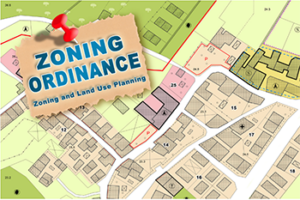How City Land Use Plans Can Be Preempted by State and Federal Laws
By Jed Burkett
 Land use planning and regulation impact the character of our communities. Cities in Minnesota have broad discretion under the state Municipal Planning Act to create comprehensive plans and adopt zoning and subdivision ordinances to implement those plans. The statute is not mandatory; rather, cities may choose to engage in planning and regulation to minimize land use conflicts and establish a development pattern over time. (In contrast, cities in the seven-county Twin Cities metro area are required under a different statute to adopt and implement comprehensive plans.)
Land use planning and regulation impact the character of our communities. Cities in Minnesota have broad discretion under the state Municipal Planning Act to create comprehensive plans and adopt zoning and subdivision ordinances to implement those plans. The statute is not mandatory; rather, cities may choose to engage in planning and regulation to minimize land use conflicts and establish a development pattern over time. (In contrast, cities in the seven-county Twin Cities metro area are required under a different statute to adopt and implement comprehensive plans.)
Understanding the Municipal Planning Act
The Municipal Planning Act sets forth a uniform set of procedures for conducting municipal planning. Cities must follow the basic procedural steps required by the statute, such as public hearings and council voting requirements. The statute also provides some substantive standards that cities must follow. It provides a three-part test of reasonableness, uniqueness, and essential character that cities must use when evaluating a request for a variance from a dimensional zoning requirement.
The Planning Act provides protections for certain uses, prohibiting cities from discriminating against them through zoning administration. A couple of protections related to residential housing that come up regularly are those having to do with manufactured homes and group homes.
- Manufactured homes. No city zoning regulation may prohibit or limit the location of manufactured homes that are built in conformance with the manufactured home building code. Cities can apply zoning requirements to manufactured homes, but only if those standards apply to all residential structures. Cities should not single out manufactured homes for special treatment.
- Group homes. State licensed residential facilities or registered housing with services for six or fewer persons shall be considered a permitted single family residential use of property for the purposes of zoning. Facilities serving from seven to 16 persons shall be considered a permitted multifamily residential use, although a city may require a conditional use permit.
- Group homes also have protection from zoning discrimination under federal law. Since 1988, the Fair Housing Act makes it unlawful to use land use policies or actions that treat persons with disabilities less favorably than non-disabled persons. Cities must make reasonable accommodations in land use and zoning policies and procedures where such accommodations may be necessary to afford persons or groups of persons with disabilities an equal opportunity to use and enjoy housing.
Telecommunications and local control
Another area of federal preemption of local land use authority is telecommunications. The 1996 Telecommunications Act preserved but limited cities’ zoning authority over cell towers and other facilities, placing several substantive and procedural limits on that authority. Cities cannot unreasonably discriminate among providers or regulate in a manner that effectively prohibits service. Cities must act on applications within a reasonable time and any denial must be supported by “substantial evidence.”
Over the years, the Federal Communications Commission has issued various rules and orders further delineating what cities can and cannot do in the area of telecommunications. A 2018 ruling limits the ability of cities to regulate the deployment of telecommunications facilities within city right of way. The state also got involved in preempting local control over telecom in city right of way in 2017, when the Legislature amended a state telecommunications statute to provide that small wireless facilities are authorized to be right-of-way users.
Proposals to preempt local land use control occur annually
Every year there are proposals before the Legislature that would preempt local land use control. For example, in 2016 entrepreneurs partnered with a manufactured home company to design and build small dwelling units to provide short-term housing for recovery or convalescence. These “granny pods” were displayed at the Minnesota State Fair and piqued the public’s interest. Since many local ordinances did not allow such housing, proponents lobbied the 2016 Legislature to create a new section of the Municipal Planning Act, Minnesota Statutes, section 462.3593, titled Temporary Family Health Care Dwellings. The statute establishes a framework for cities to issue permits for these small dwelling units if applicants meet certain criteria. The statute also includes a provision that allows cities by ordinance to opt-out of the requirements of section 462.3593.
Cities are generally free to create and implement whatever vision and regulations fit their needs, but sometimes federal or state law preempts local land use planning authority. And there is always the potential for further restrictions on local control in the future. As much as possible, cities should understand the existing, and possible future, preemptions to local land use authority rather than get caught by surprise.
Jed Burkett is a loss control and land use attorney with the League of Minnesota Cities. Contact: jburkett@lmc.org or (651) 281-1247.

